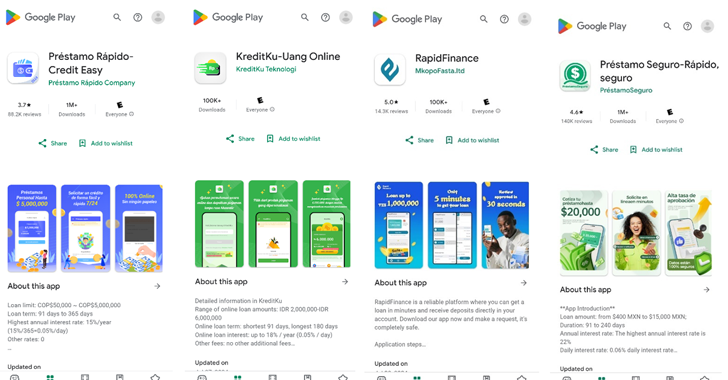8 Million Android Users Fall Victim to SpyLoan Malware via Loan Apps on Google Play

Over 8 million Android users across nine countries have been impacted by SpyLoan malware embedded in loan apps downloaded from the Google Play Store. These apps exploit user trust, financial desperation, and intrusive permissions to harvest sensitive data, leading to extortion, harassment, and financial loss.
- Malicious Apps Identified: 15 predatory loan apps on Google Play Store, targeting users in countries like Mexico, Colombia, Thailand, Indonesia, and more.
- Intrusive Permissions: Apps request access to camera, call logs, contact lists, location, and SMS under the guise of anti-fraud measures.
- Data Exfiltration: User data is encrypted and sent to a command-and-control (C2) server, enabling threats like extortion and privacy violations.
- Widespread Impact: The apps have been downloaded over 8 million times, with some still available on the Play Store.

- Repeat Offender: SpyLoan malware has been operational since 2020, continuously evolving to evade detection and target unsuspecting users.
- Global Exploitation: Common code and framework suggest a shared developer or modular system used by cybercriminals worldwide.
SpyLoan malware apps represent a global cyber threat, exploiting financial vulnerabilities and user trust. Net Protector Cybersecurity urges Android users to scrutinize app permissions, validate app developers, and avoid downloading apps from unverified sources. Strengthening awareness and practicing caution are essential steps to safeguard personal data and avoid falling victim to such fraudulent schemes.
Comment(s)






